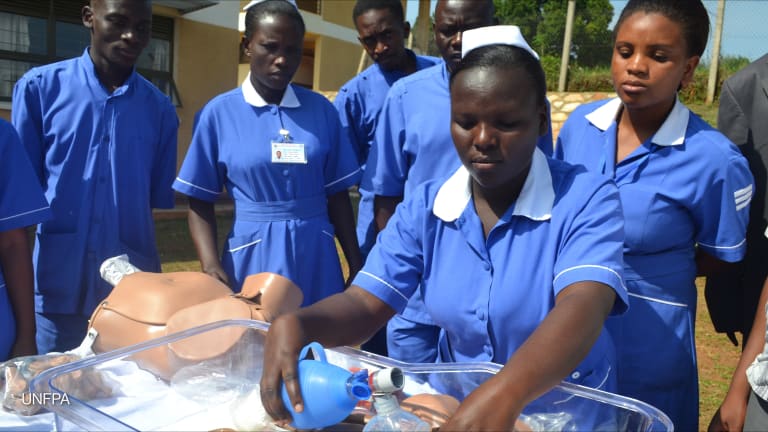The United Nations Population Fund (UNFPA) is the world’s most expansive international source of funding for population and reproductive health initiatives. The fund aims to improve the quality of life of individuals and communities all over the world by supporting programs that respond to reproductive health issues, and by working with governments and non-governmental agencies in the creation of policies that will usher countries towards better population management and sustainable development.
Fulfilling these objectives is a sizable task, as Sunita Mukherjee will attest to. Being the UNFPA Country Representative for the Philippines, Mukherjee is responsible for ensuring that the fund’s various programs are executed well and that the goals for those programs are sufficiently met. She also sees to it that the key principles of improving and maintaining reproductive health, family planning, and gender equality are successfully integrated into Philippine law. “We tread on the difficult ideas and work with the government, NGO’s, and civil society to bring about change,” Mukherjee explained. “We also work with legislators and policy makers. That is how we work, and this is what my responsibility entails: to help the government and the NGO’s create better reproductive health lives for its people.”
However, her work is not without its difficulties. As receptive as some cultures are in matters of sexual health, others are extremely reserved where reproductive concerns are involved. “Sex is often a taboo in many Asian countries, even if sex is a normal function in all of us.” Mukherjee acknowledges that in the Philippines, where majority of the population are Roman Catholics, effectively addressing reproductive health and gender equality issues can be very challenging. Fostering awareness, for one, is met with some resistance by the country’s own religious or cultural stance. According to Mukherjee, the lack of available information regarding sexual health puts the country’s young adults in a tenuous position. “It is important that we explain to the country’s youngsters the kind of hormonal changes taking place in their bodies,” she said. “Giving them information and services would help them to avoid sexually transmitted infections, avoid unwanted pregnancies, and also make them more responsible citizens.”
However significant the challenges are, Mukherjee takes pride in the fact that there has been some improvement in the Philippines’ response to reproductive health and gender equality issues. “I love the fact that I can make a difference. And I love the fact that in spite of all these challenges, we have been able to address, to a large extent, the contraceptive issue. We hope to make a much larger difference in safe motherhood, in saving women’s lives. No woman should die giving birth,” she exhorted.
Before she occupied her current post, Mukherjee served as the UNFPA Country Director for Bangladesh, Sri Lanka, and Maldives, and was once the Secretary to Government in India. She graduated from Punjabi University with a degree in Economics and Literature, and holds a Masters Degree in English Literature and a Ph.D. in Public Management.
Although Mukherjee recognizes that the UNFPA in the Philippines is working towards some very ambitious goals, she also understands that these goals are not at all unattainable. “We would like to see a country where every birth is planned, where every birth is safe, where every young person is free of HIV/AIDS, and where women and girls are treated with dignity and respect,” she exhorted. “We’re working hard, not just by ourselves, but with our partners and stakeholders. And we’re working hard towards achieving these goals. They’re lofty goals and lofty visions, but we are driven by a sense of mission.”








